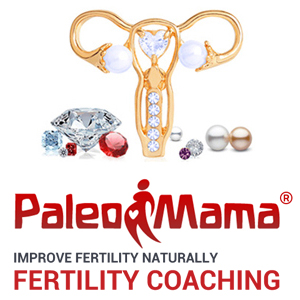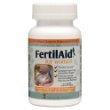Folic acid increases fertility

Folic acid improves chances to conceive and get a healthy baby. Image courtesy of stockimages at FreeDigitalPhotos.net
If you are over 35, trying to get pregnant for a while, and live in a modern Western society, you definitely need prenatal supplements with folic acid.
Besides improving your chances to get pregnant, folic acid will give the best start possible to your baby, which will need a lot of support in order to grow and develop well during the nine months in your belly.
In finding a supplementing strategy that works best for you, you may first want to focus on the “basics.”
You are free to choose from any of the well-known prenatal multivitamin brands, only make sure from the label that they contain at least 400–800 µg folic acid.
Start taking them at least three months before you try to get pregnant and continue throughout the first pregnancy months.
If you can memorize only one single supplement you should not omit during the preconception time, it is folic acid. Taking folic acid in the months prior to conception contributes to the prevention of severe neurological disorders in babies.
Therefore, folic acid increases fertility by helping you get and STAY pregnant, and enabling the best developmental conditions for your baby to develop well.
In this case, your genes and personal sensitivities don’t play a role, so that your simple decision to take a folic acid supplement can make a huge difference to the future health of your child.
A study published in 2009 in the journal Midwifery, showed that, in a sample of 588 Australian women who were actively trying to conceive, less than one-third took a pre-pregnancy folic acid supplement! Factors that were associated with an increased risk of not taking folic acid were income, smoking in mother, and baby being a non-first child.
Which lifestyle interventions are most likely to improve your chances of conceiving?
In a nutshell, folic acid will help you get pregnant and STAY pregnant.
Taking only folic acid places you in the top 30% women who are proactive in improving their chances to get a healthy baby (or babies!)
You may also want to know of the growing body of evidence from animal studies on the long-term effects of a mother’s nutrition on later disease susceptibility in her offspring? WHAT DOES THAT MEAN?
It means that nutritional milieu in a pregnant mother’s uterus induces slight alterations directly on the DNA of her baby (not exactly overwriting it, but adding some extra marks to it, this is called “epigenetic modification”), which affects the offspring’s susceptibility to many diseases later on in life. Evidence in human subjects is scant (for moral, ethical, and practical reasons it is not possible to experiment on human babies the way we do with animals).
Before the science figures this out, you can keep in mind the known facts, such that as during pregnancy, human babies have a high demand for folic acid and other B-group vitamins in order to develop their nervous system properly. So, folic acid is not something you want to leave your little baby without.
Folic acid (take 800µg folic acid every day while you are trying to conceive and continue throughout pregnancy):
Prenatal vitamins:
References:
- Candito M, Rivet R, Herbeth B, Boisson C, Rudigoz RC, Luton D, Journel H, Oury JF, Roux F, Saura R, Vernhet I, Gaucherand P, Muller F, Guidicelli B, Heckenroth H, Poulain P, Blayau M, Francannet C, Roszyk L, Brustié C, Staccini P, Gérard P, Fillion-Emery N, Guéant-Rodriguez RM, Van Obberghen E, Guéant JL. Nutritional and genetic determinants of vitamin B and homocysteine metabolisms in neural tube defects: a multicenter case-control study.Am J Med Genet A. 2008 May 1;146A(9):1128-33.
- Forster DA, Wills G, Denning A, Bolger M. The use of folic acid and other vitamins before and during pregnancy in a group of women in Melbourne, Australia.Midwifery. 2009 Apr;25(2):134-46.
- Hammiche F, Laven JS, van Mil N, de Cock M, de Vries JH, Lindemans J, Steegers EA, Steegers-Theunissen RP. Tailored preconceptional dietary and lifestyle counselling in a tertiary outpatient clinic in The Netherlands.Hum Reprod. 2011 Sep;26(9):2432-41.
- Monteagudo C, Mariscal-Arcas M, Palacin A, Lopez M, Lorenzo ML, Olea-Serrano F. Estimation of dietary folic acid intake in three generations of females in Southern Spain. Appetite. 2013 Aug;67:114-8.
- Steegers-Theunissen RP. Preconception folic acid treatment affects the microenvironment of the maturing oocyte in humans. Fertil Steril. 2008 Jun;89(6):1766-70.






